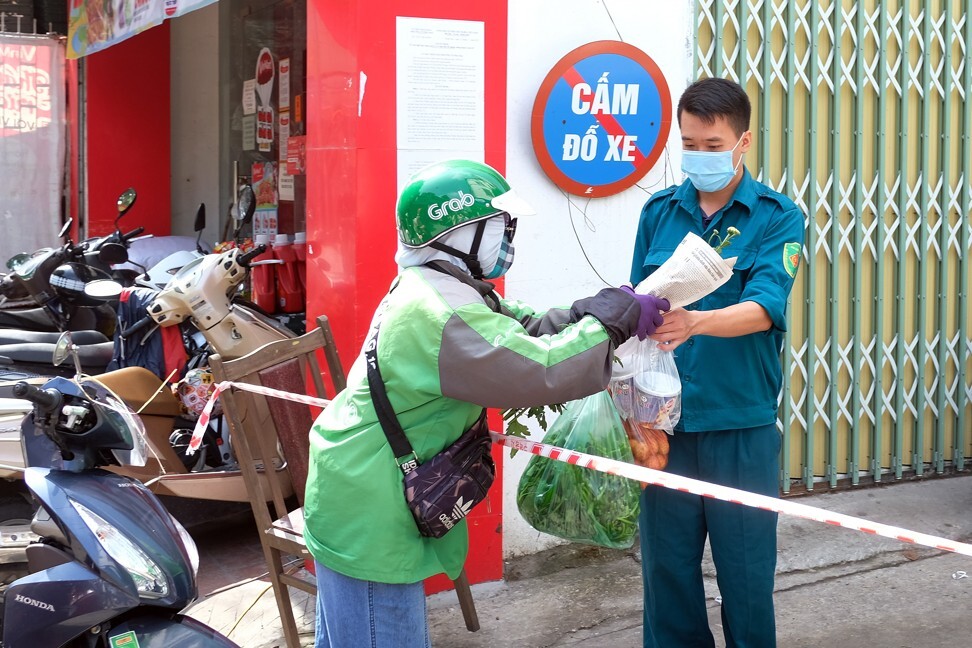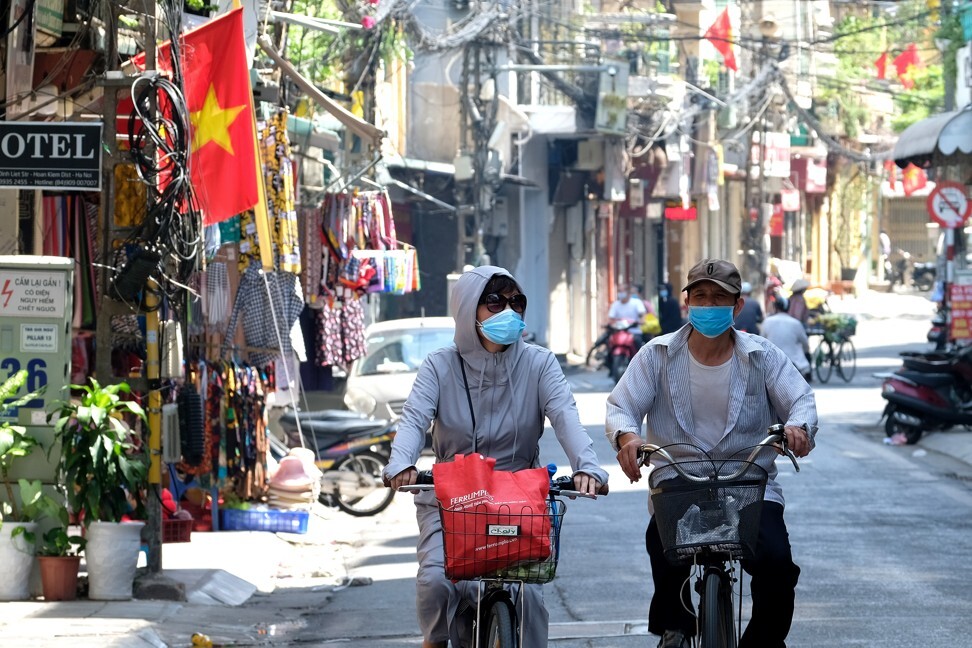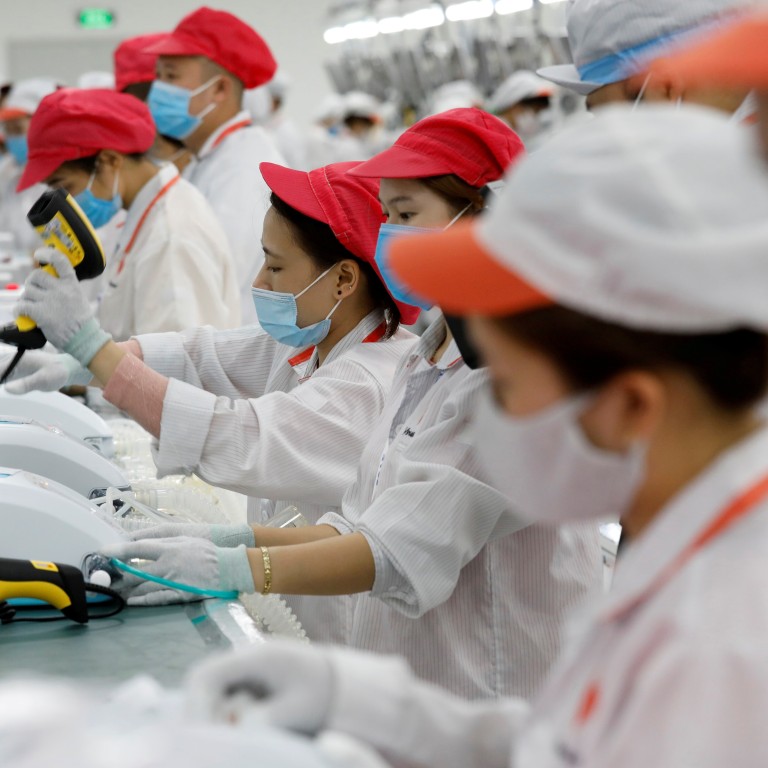
Coronavirus: Vietnam races to cut disruptions for suppliers of tech firms such as Apple, Samsung
- Cases in Vietnam have spiked in the past month, including in the northern industrial production hubs, as the government eyes economic recovery plans
- If the latest outbreak cannot be contained, Vietnam could lose the manufacturing gains it has made amid the US-China trade war, an analyst says
The chief executive of Ngoc Nghia, a firm that supplies plastic packaging to Coca-Cola and other brands, had a few dozen manufacturing workers doing three shifts a day at their factory in Bac Ninh, next door to epicentre Bac Giang.
Authorities on May 18 shut four of six industrial estates in Bac Giang, where the Vietnamese arm of Japan’s electronic parts maker Hosiden makes up the largest cluster, recording over 1,000 cases as of Monday. Some factories in Bac Ninh were also locked down.
La’s company raced to isolate workers in response to the outbreak. Manufacturing staff have been working and living between the factory and a designated hotel, with the firm paying for the accommodation and food. Other employees such as managers and office staff are working from home.
“We have to ensure that our supply chain is stable and is able to react to the situation of the industry,” said La, whose firm produces about 7 billion product units annually.
While none of Ngoc Nghia’s manufacturing workers tested positive for Covid-19 as of Saturday, it was staying cautious by reducing the daily shifts from three to two.
La said while the situation at her Bac Ninh factory was “very intense”, as managers and directors had become stressed over the Covid-19 testing fees and increased logistics costs, the firm had mostly been able to meet its delivery schedules and avoid any major damages.
“The logistics have become more difficult because of the safety protocols. Our company and our suppliers have found fewer drivers who are willing to transport finished goods to buyers,” said La, adding that this required “intensive coordination” between all parties and there were sometimes delays.

04:12
What do we know so far about the Covid-19 variants?
NATION ON ALERT
More than half of Vietnam’s total caseload has been cases discovered from late April. On Sunday, amid the growth of a new infection cluster linked to an evangelical mission, authorities said they would impose a stricter lockdown in capital Ho Chi Minh City, with mass testing for its 9 million residents under way.
Coronavirus: Vietnam detects new UK-India ‘hybrid’ variant
Bac Giang and Bac Ninh, where paved roads and industrial zones are sandwiched between rice fields, were in the top 10 localities in the country that benefited from the FDI capital flow.
As of last year, South Korea, Japan, Singapore, Taiwan and Hong Kong were the top five foreign investors in Vietnam, with China and the US ranking 7th and 11th. About half of Samsung’s smartphones are produced in Vietnam, as are scores of Airpods and other Apple products.
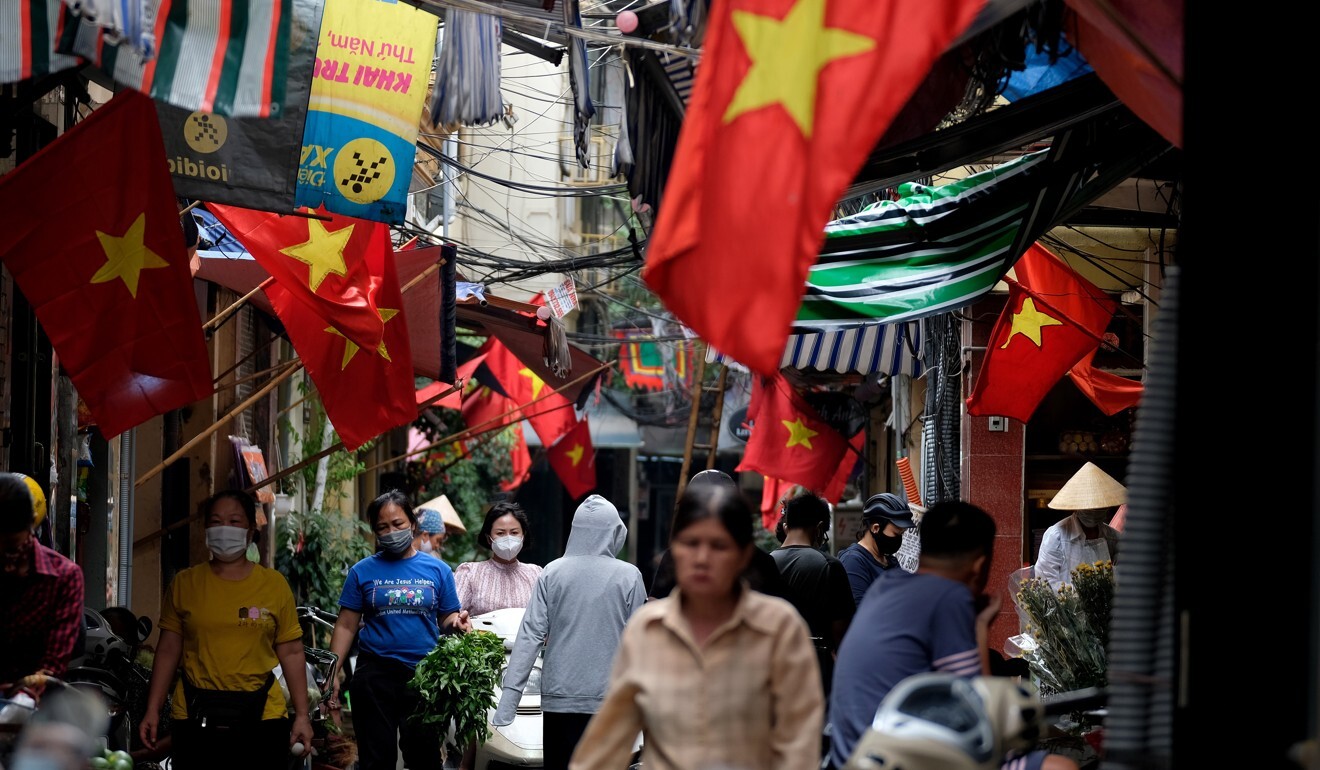
Vietnam’s Prime Minister Pham Minh Chinh last week made clear his government’s priorities in sustaining economic growth while controlling Covid-19, when he told officials in both Bac Giang and Bac Ninh to “avoid supply chain disruption at the industrial estates, especially Samsung-related facilities”.
By Sunday, nine businesses in Bac Giang that had been shut were allowed to reopen under strict conditions, including polymerase chain reaction (PCR) testing for all workers, regular weekly Covid-19 tests in the first month and on-site accommodation. These included Foxconn Group’s subsidiary New Wing Interconnect Technology, Chinese electronics component manufacturer Fuhong Precision Component and South Korea’s Gigalane, which manufactures radio frequency communication components and semiconductor equipment.
A day before the reopening, the Ministry of Health announced that vaccines had been rolled out for factory workers in the two provinces, with the goal to inoculate around 240,000 people in total, or about half the total number of staff.
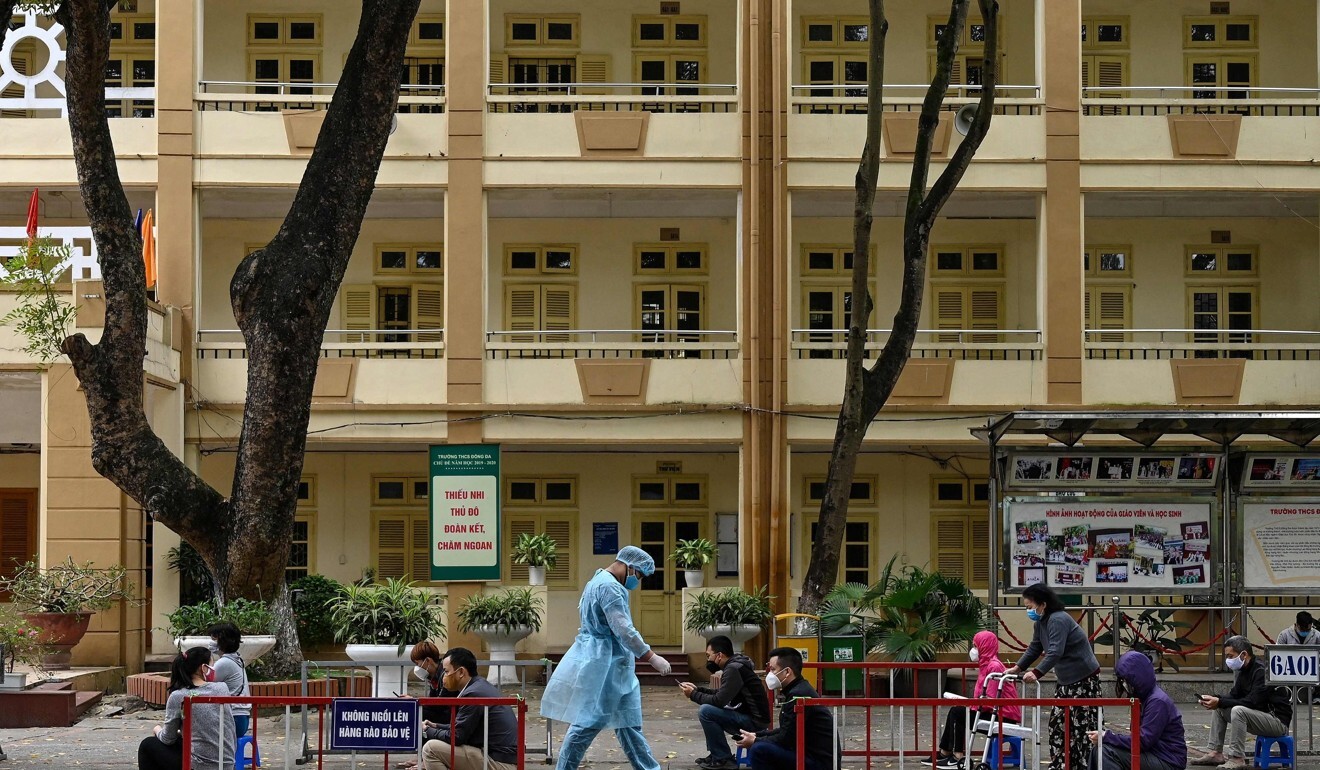
NO FOOD, INCOME
The shutdowns in Bac Giang and Bac Ninh have come as a blow to its factory workers, many of whom are migrants from other parts of Vietnam.
Many workers in both provinces, where they rent rooms, have been left without food or income. In Viet Yen commume in Bac Giang, for example, authorities last week said they had opened “0-dong markets” where homeowners could pick up free groceries for their tenants. It would cost about 310 billion dong (US$13.4 million) to compensate factory workers with a month’s salary and aid to support their needs during quarantine, the province said.
On Facebook, community groups are filled with thousands of posts by factory workers sharing information about Covid-19 checkpoints in their neighbourhoods, philanthropic donations, and the lack of food.
“When will the 21 days [of lockdown] end? Stopping work because of the outbreak, and eating and sleeping in my room will make me crazy,” said Facebook user Keo Dang on Friday, in a group linked to Foxconn’s official Facebook page in Vietnam.
The situation is very stressful. A disaster. There are too many patients.
Across Vietnam, independent groups, individuals and celebrities shared social media posts about sending food packs and other donations to Bac Giang and Bac Ninh.
The Song Foundation, a Ho Chi Minh City-based philanthropic non-profit foundation, raised some 3.6 billion dong (US$156,500) as of Monday to aid frontline health care workers and medical facilities with equipment such as coronavirus testing kits, personal protective suits, and N95 masks, founder Pham Thi Huong Giang said.
“The situation is very stressful. A disaster,” she said. “There are too many patients.”
Vietnam’s Ho Chi Minh City to test entire population for coronavirus
A sales manager of a big mechanical components distributor in Bac Ninh, whose clients are Chinese, Japanese and South Korean companies including Samsung, sounded a more upbeat note.
Staff in the company had been working from home but this had not affected sales, because they had been able to look for alternative manufacturers who were not compromised by the current outbreak, said the manager, who declined to be named as he was not authorised to speak to media.
He added that his company had also digitised its sales some years ago, allowing staff to still liaise with buyers online and on the phone.
“It is the manufacturers who are in much worse shape due to their poor management of Covid-19 which has made it less safe for their workers,” said the manager. “Suppliers would also be fearful of infection when working with them.”
Nguyen Phuong Linh, associate director with global consultancy firm Control Risks, said the recent rapid transmission in some large industrial estates had “truly challenged the newly elected leaders in Hanoi”, even as Vietnam has been relatively successful in managing the outbreak, preventing human and economic loss, and securing public trust for over a year.
“Vietnam is a crucial link in global supply chains and most foreign manufacturers have regarded the country as a very attractive destination to do business,” she said.
“But since the newest wave of infection in Asia, questions have been raised over whether the so-called ‘China+1’ countries, such as India and Vietnam, are really better prepared than China to deal with the future pandemic,” she said, referring to an economic strategy taken by some countries to avoid reliance on China.
“If the disruption in the manufacturing sector in Vietnam spreads further, some foreign investors will doubtless have to increase the risk element in their investment calculations for Vietnam.”


